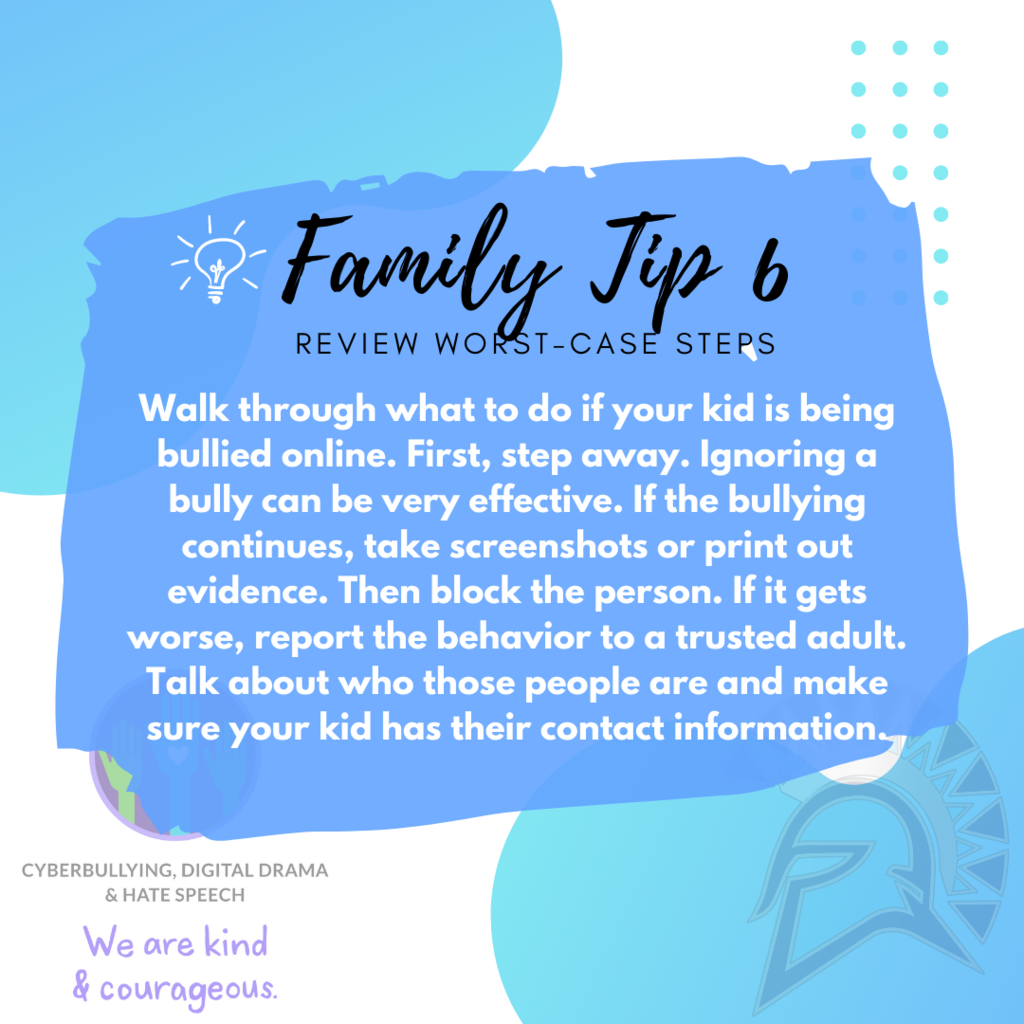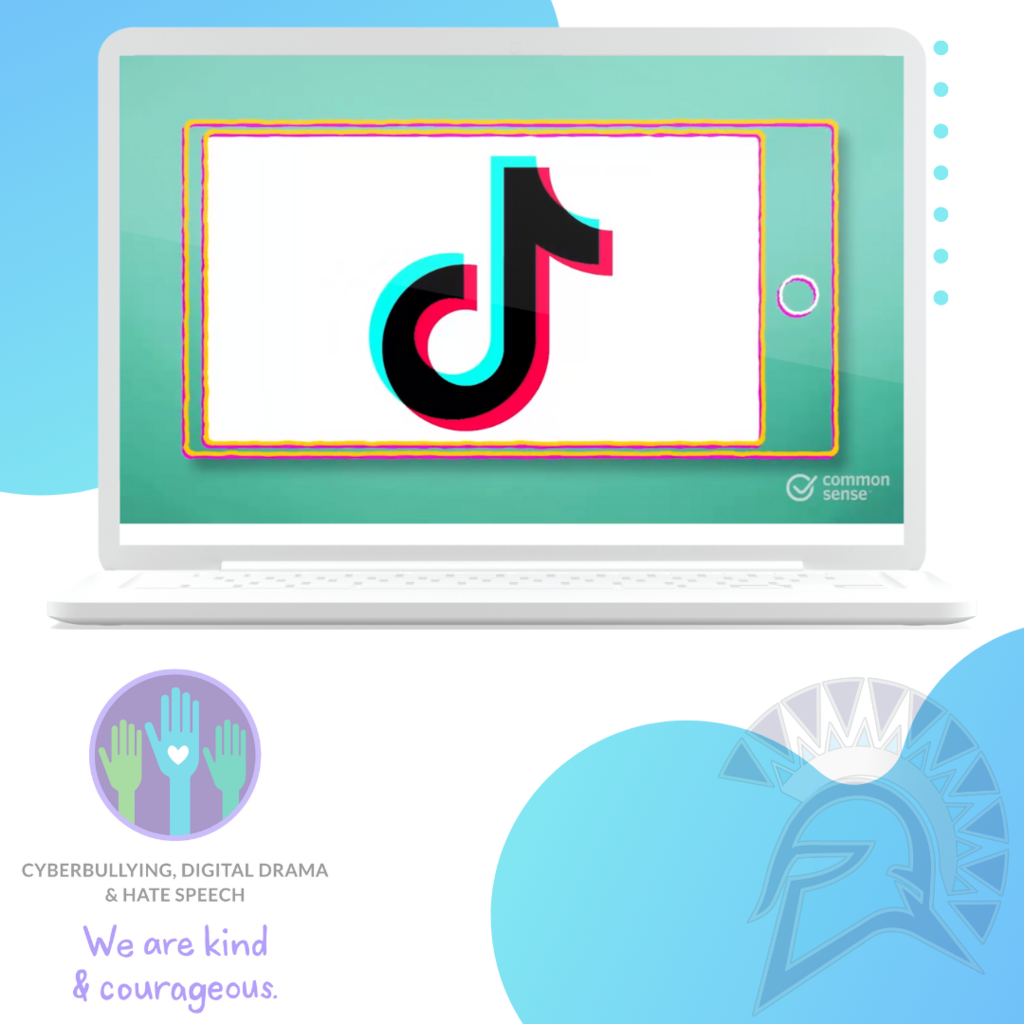Family Tip 3: Avoid location tracking.
Location-aware apps can be super helpful. But apps that use a device's location to help people find your kid or offer them ads for nearby businesses should be used with caution. Turn them off if you can.

Everyone has an opinion about whether fidgets should or shouldn’t be allowed in classrooms. Fourth graders researched this controversial topic and presented their opinions to the class.


Article: Why parents should care about kids and online privacy
bit.ly/olyDSA2
If you don't want to have the bejesus scared out of you, don't talk to an expert on kids' online privacy. If you knew what was really out there -- online predators, identity thieves, data miners -- you'd lock up the internet and throw away the key. The truth is, an ounce of prevention is worth a pound of cure. The internet is so woven into our lives, we need to be aware of the worst-case scenarios that can strike when we're unprepared. Read more using the link above!

Family Tip 2: Use privacy settings.
Together, go through the settings on all new apps to make sure you both know what information your kids are sharing. Especially in the beginning, it's better to share very little.

Due to road conditions, the Olympia School District will be utilizing a remote learning day for Friday March 11th. Elementary students should work on their packets that were sent home and Middle School and High School students will be expected to check Google Classroom for instructions from their teachers.
A decision regarding activities will be made this afternoon. Coaches will be in contact with students and families.
Thank you, and have a safe Friday!
--
Andy Walsh
Assistant Superintendent

Article Link: bit.ly/olyDSA1
If you're not ready to #deletefacebook, here are 13 simple things you and your kids can do on your social accounts, phones, and devices to keep data safe.

Family Tip 1: Discuss Personal vs. Private Info.
Talk about the difference between what's OK to share online (favorite color) and what's not (home address).

Check out how we work hard to protect your child's data privacy here at Olympia!
bit.ly/olydataprivacy

When kids start to go online, whether they're playing multiplayer games, using educational apps, or just following their curiosity on Google, it's important that they understand the basics of online privacy and safety. With some general guidelines around what information is and isn't OK to share, and some help from parents when they're unsure, kids can have fun and learn a lot in the digital world.
When kids go online, whether they're playing multiplayer games, using social media apps, or posting their latest creative expressions, it's important that they understand how to keep their private information safe. With tips on how to avoid scams and protect their personal data, tweens and teens can travel all over the digital world -- and still be in charge of their digital footprints.
We will expand on these tips throughout the month during our Family Tips series!

Q&A: bit.ly/olyDSA6
To help kids maximize the Internet's benefits -- while minimizing the risks -- we offer the latest research, tips, and tools on what really keeps kids safe. Which privacy settings should you use? What are the ins and outs of parental controls? Get tips on everything from the basics, such as smart usernames, to the big stuff, such as appropriate sharing. Plus, tell companies to stop profiting from kids' data and file a Do Not Sell request with the apps and websites your family uses.

Video: bit.ly/OlySPV1
Sharing photos, posting comments, playing video games are just a few of the ways that kids interact online. But when sharing goes beyond friends and family, it can be risky.

Video: bit.ly/OlyCBV3
Chatting online can feel just like talking to someone in person, but it's actually quite different. It's all because of something called the "online disinhibition effect," which makes us more likely to share/communicate differently than if in person.

Fourth graders at West practiced some challenging skills today as they shared reasons, evidence, and proof to support their answers. Awesome work, Spartans!

Family Tip 6: Review worst-case steps.
Walk through what to do if your kid is being bullied online. First, step away. Ignoring a bully can be very effective. If the bullying continues, take screenshots or print out evidence. Then block the person. If it gets worse, report the behavior to a trusted adult. Talk about who those people are and make sure your kid has their contact information.

Resources: bit.ly/OlyCBR1
There are A LOT of "social media" sites out there. You know about Twitter & Facebook, but what about Reddit, TikTok, Twitch, Sarahah, or Discord? Educate yourself with this list of short explanation videos from Common Sense media!

Video: bit.ly/OlyCBV4
For kids, miscommunication is a common occurrence online and on social media. Plus, being behind a screen makes it easier to say things they wouldn't say in person. So how do we help kids avoid the pitfalls of digital drama? Hear it from the source!

Family Tip 5: Take breaks
If you notice your kid getting pulled into digital drama, help them take a break. It's great if they can determine for themselves when they need to step back, but they might need some help setting limits.

Video: bit.ly/OlyCBV5
Digital harassment happens when teens use texts, instant messages, emails, and social media posts to keep tabs on or threaten someone else. It usually involves two people in a close relationship. Here are four ways to help teens avoid digital harassment.

Books that Teach Empathy: bit.ly/OlyCBB
Teaching kids character strengths and life skills such as empathy is one of the most important jobs of being an adult. These great books for all ages help make it easier by celebrating friendship, difference, and the importance of caring for one another.


